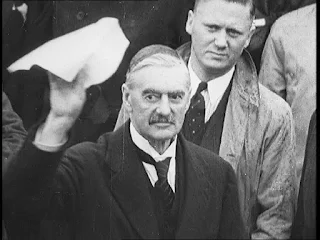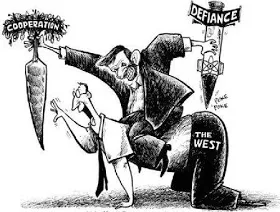Appeasement: A Historically Failed Foreign Policy Approach
On September 30, 1938, British Prime Minister Neville Chamberlain waved a piece of paper to the cheering crowd gathered at Heston Aerodrome. He had just flown back from Germany, and that paper had the signatures of himself, and German Chancellor Adolf Hitler. They had signed the Munich Agreement. In essence, it allowed Germany to annex the Sudetanland in western Czechoslovakia, in exchange for no more land grabs or aggression from Germany. "I have returned from Germany with peace for our time", declared a jubilant Chamberlain. His harshest critic, Winston Churchill, responded, "You were given the choice between war and dishonour. You chose dishonour and you will have war." Churchill was right. On September 1, 1939, German panzers rolled into Poland in a "Blitzkrieg", a lightening war, and took over Poland. Two days later, Britain and France declared war on Germany. What Chamberlain and the rest of Europe found out, was that appeasement never works and has dire consequences. That is a historical fact and an insightful truth.
Why has the policy of appeasement failed? It is quite logical actually. Much like a parent who has kids knows all too well. If you bargain with your kids, and continue to give in to their demands, they will take and take. At some point, you have to have a backbone and stop the aggression. History proves and has shown us, that you can't appease evil. They know no rules. You can't just bake a cake and sing kumbaya. There is no safety or security when you embark on a foreign policy strategy of appeasement. You end up kicking the can down the road and just postponing the inevitable confrontation, and quite honestly, making the confrontation and the consequences much more dire and costly. Iran is the latest example, and the Germany of today. Will we learn the lessons from the 1930's or will we have to again face the horrible consequences that result from the historically failed foreign policy approach of appeasement?








Comments
Post a Comment